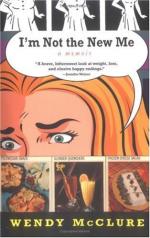She feared her hired man was slack and neglected his work; yet when he threatened to go, and afterward compromised the matter by offering to stay if she’d marry him, at a loss what to do, and partly because she was lonely, she married him. He was a respectable man, whose only fault was laziness, and she hoped that now he would take an interest. When Armida and her husband came back from the minister’s and announced to Lucas that they were married, his only comment was, “Well, a slack help will make a shif’less husband.”
Years went by, and Armida’s side of the house fell more and more into ruin; while Lucas, with what Armida considered cruel carefulness, kept his in excellent repair and occasionally renewed the paint. The contrast was so great that passers-by stopped their horses that they might look and wonder at their leisure. Every glance was like a blow to Armida, so that she avoided her sitting-room and kept herself in the uncomfortable kitchen that was divided by an imaginary line directly through the middle, a line never crossed by her brother, her husband, or herself.
It would have looked absurd enough to a stranger to see this divided room, with the brother clumsily carrying on his household affairs on the one side and the sister doing her work on the other, with often not a word exchanged between them for days together. Absurd it might be, but it was certainly wretched. Armida grew old rapidly. Her husband was a poor stick, and when, as years passed, a touch of rheumatism gave him a real excuse for laziness, he did little more than sit by the fire and smoke.
As Armida sat on the bench under the old russet apple-tree by the back door one day, regretting her evil fate, she heard footsteps approaching, and, pushing back her old sun-bonnet, looked up to see a shabby, shambling, oldish man coming around the side of the house and gazing in at the windows, “What ye doin’ there?” said Armida sharply.
The man turned, surveyed her with a smile, then said with a drawl she remembered: “I hain’t been gone so long but that I know ye, Armidy. Don’t you remember me?”
“Theodore Huxter! Is that you? Well!” and she hurried up to him, and shook hands violently.
“I heard only last week that father was dead,” he explained. “I seen a man from this way, and he said he was gone. How long since?”
“More than ten years ago.”
“Well, I thought I’d come and see ye.”
“I’m glad you did,” she said. “But come right in;” and she led the way into the kitchen.
He leaned up against the door and surveyed the room. “I should ‘a’ s’posed I’d have remembered this room, but what ye done to it? What hev you got two stoves and two tables and all that for, Armidy?”
Armida told him all, winding up her story with a few tears.
“That accounts for the looks of the outside, I s’pose,” was his only comment. “I thought it was about the queerest I ever see. It’s ridiculous! Why haven’t you and Lucas straightened out affairs before this?”




